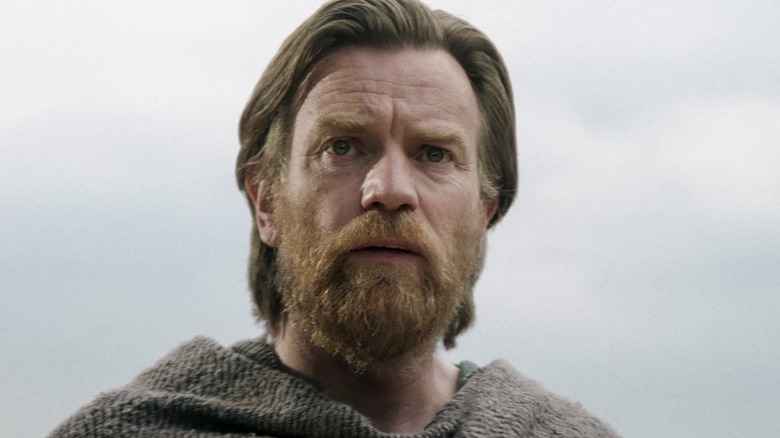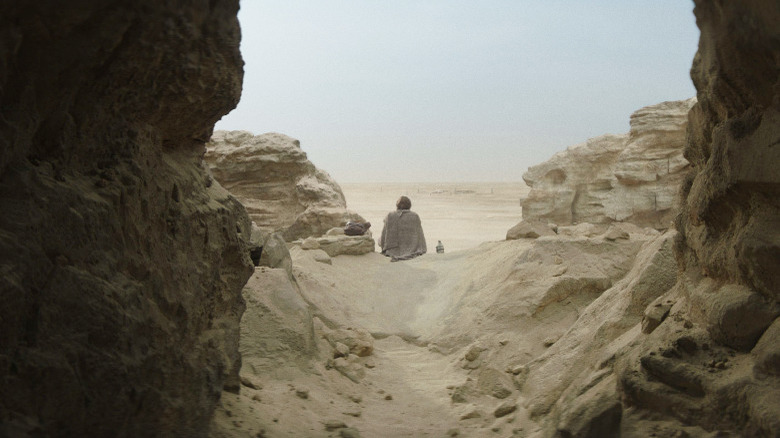Obi-Wan Kenobi Revealed The Challenges Of Telling A Story Between Trilogies
It's gotten to the point where there are nearly as many "Star Wars" TV series and movies that take place between the events of the original and prequel "Star Wars" film trilogies as there are movies in those trilogies combined. It's one of the many challenges faced by "Obi-Wan Kenobi," a show that picks up with the titular Jedi (as once again played by Ewan McGregor) 10 years after "Revenge of the Sith." That it's a limited series also means it has to tell a self-contained story on top of acting as a prequel to the original trilogy and a sequel to the prequel trilogy. Does your head hurt yet?
Thankfully, "Obi-Wan Kenobi" is directed by Deborah Chow, a filmmaker who did terrific work with a pair of episodes from "The Mandalorian" season 1 ("The Sin" and "The Reckoning"). But for all the experience she already has playing in the "Star Wars" TV sandbox, "Obi-Wan Kenobi" and its placement in the franchise's timeline presented a unique challenge. In fact, at a press conference attended by /Film, Chow said that telling a story between "Star Wars" movie trilogies was the hardest part of the entire venture:
"I would say that was definitely one of the biggest challenges of the series. Obviously, we have these huge legacy iconic characters, and we're in-between two trilogies. So, in large part, we're telling the second act of a story, which is often challenging enough. So I think the biggest thing we were looking at is to respect the canon and respect what's been done, but we also needed to have an original story and have an original vision for it. So I think that was the biggest challenge..."
The Mandalorian is 'more episodic' than Obi-Wan Kenobi
A lot has changed since Ewan McGregor played Obi-Wan Kenobi in the "Star Wars" prequel film trilogy, not least of which is the tech used to create the alien plants and fantastical scenery of a galaxy far, far away. However, as McGregor explained at the same press conference, having Deborah Chow direct every episode of "Obi-Wan Kenobi" — combined with the fact its over-arching story isn't meant to be carried over into future seasons like "The Mandalorian" — made the project feel more like a movie than a TV series during filming. As McGregor said:
"The technology's so different from when we made the [prequel] movies. It felt like a different experience anyway. But I don't think it was because it was a TV show. The beauty of it being a series is that we've got longer to tell the story. But because [Deborah Chow] directed [all the episodes] and it's her singular vision throughout, it did feel like we were making one movie. And the episodic nature of our series, it falls really cleverly in the storyline, but it is one driving narrative. I think 'The Mandalorian' feels more episodic, if you like, because it suits that storytelling. And, of course, [it] has a driving storyline through each season. But ours is like a movie that just happens to be split up into these episodes."
Honestly? Coming after the muddled storytelling in "The Book of Boba Fett," my biggest hope is "Obi-Wan Kenobi" will be a far more tightly-structured "Star Wars" series that tells an engaging story that can stand on its own. We will see if that's the case when it premieres on Disney+ on May 27, 2022.

